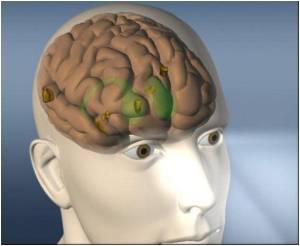Brain circuits involved in hearing are formed even before there is sensory experience, researchers have discovered using a new technique.

Two research teams at the Zilkha Neurogenetic Institute (ZNI) found that before an animal model had any hearing experience, the brain's elementary thalamocortical circuits with balanced excitation and inhibition functions - a feature of brain activity essential for normal functions-had already formed.
"The scientific view had been that sensory experience should play an instructive role in the initial formation of appropriate brain circuits, so this is a big surprise. Because the circuits had already formed, no sensory experience was required," said Li Zhang, principal investigator on the study.
The study is considered as a step in addressing a major debate in neuroscience over the last century-it could explain the roles of genetics and environment in the development of the human nervous system.
"In general we know that both factors play essential roles in the establishment of neural circuits. The question is which factor plays a dominant role in the different stages of development, and how. It's a difficult question to resolve because of the dauntingly complex structure of the brain," said Zhang.
They also found that after the onset of hearing an elegant refinement of the neuron's excitation function takes place.
"We now see that the sharpening depends more on fine adjustments in the strength of excitatory neural connections, and that modulations of the excitatory and inhibitory connections lead to a slight breakdown of the priorly formed excitation-inhibition balance," he added.
In the experimental setting, the researchers surgically exposed the cortex of the brain of a young anesthetized rat.
They used glass microelectrodes to reach and patch onto neurons buried in the cortical tissue, and then break into their membranes in order to monitor their electrical activity.
This allowed the researchers to separately record the inhibition and excitation functions of the neurons.
"This is the first time anyone has applied this cutting-edge electrophysiological technique - in vivo whole-cell voltage-clamp recording - to the developing cortex of the brain. Previous hypotheses were limited by techniques that couldn't reveal detailed structure and subtle changes," said Zhang.
Currently, Zhang's research team is examining how the neural circuitry is affected when animals are exposed to noise.
The discoveries are published in a recent issue of Nature journal.
Source-ANI
 MEDINDIA
MEDINDIA




 Email
Email








